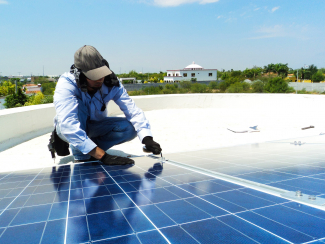Technical fossil fuel energy efficiency (TFFEE) and debt-finance government expenditure nexus in Africa
Achieving the SDG7 goal, among other things, requires doubling efforts in energy efficiency improvements. However, in Africa, the progress has been slow, proving difficult for the continent to achieve the target set for 2030. The purpose of this study was to examine the effect of government expenditure (conditioned on external debt finance) on fossil fuel energy efficiency in 28 African countries, using data from 1988 to 2016.



